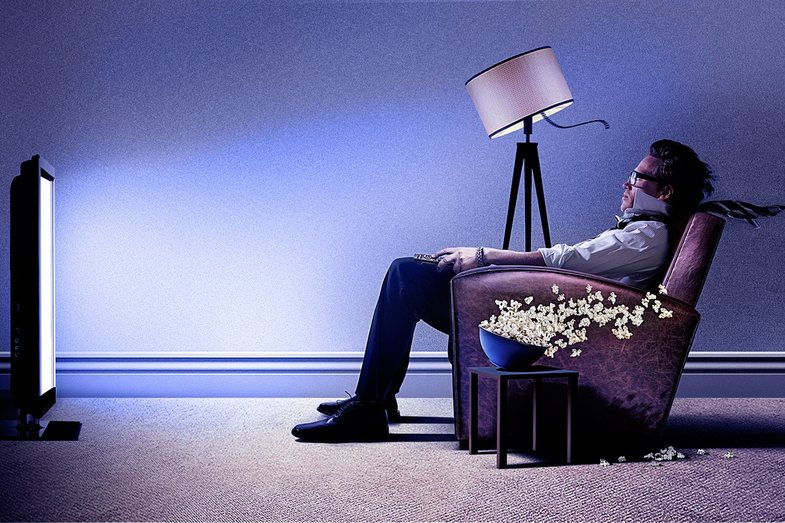
The more television you watch in your 40s, 50s and 60s, the greater your risk for brain health issues in later years. This according to researchers who presented three new studies of Epidemiology, Prevention, Lifestyle and Cardiometabolic Health at the American Heart Association conference.
Studies used watching TV as a measure of sedentary behavior (i.e., time spent sitting). Brain health was later measured by participants by answering questions about their vision habits, completing cognitive tests, and passing MRI scans of the brain.
Together, the researchers' findings suggest that people who self-report moderate or excessive (high) TV viewing experience experience greater cognitive decline and lower "gray matter" in their brains later in life is involved in decision making, hearing and sight, and muscle control.

What you can do starting today
When it comes to lifestyle modification, it is ultimately your choice of how to act to get the best results. You know what you will stay with and what you will not. Instead of picking up the remote control, get an interesting book or go for a walk.
Sidoqoftë, konteksti personal është gjithashtu i rëndësishëm. Kjo do të thotë se nëse nuk jeni lexues i librave, mos vendosni të kaloni të gjitha orët duke lexuar romane. Nuk është se është një ide e keqe. Thjesht nuk ka të ngjarë të çojë në ndryshime të qëndrueshme. Në vend të kësaj, zgjidhni aktivitetet që do t'ju pëlqejnë, kështu që ka më shumë të ngjarë të vazhdoni t'i zgjidhni më vonë.
Disa sugjerime:
- ecje e shpejtë
- gjimnastikë në ujë
- kërcim
- kopshtari
- tenis
- biçikletë
- not
- kërcime aerobike
- çiklizëm
- kërcim me litar
Gjithashtu mund të zgjidhni të bëni më shumë aktivitete ulur që stimulojnë funksionimin e trurit, duke përfshirë gjëra të tilla si thurja, plotësimi i fjalëkryqeve ose luajtja e një instrumenti.
Whatever you do, the next time you pick up the remote, consider brain health 20 years later and ask yourself: Is this the best way to spend time?
Sources: LiveScience, Healthline, NPR.org





